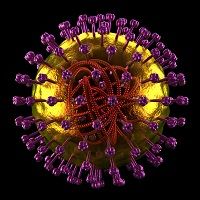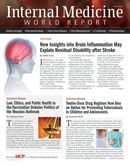Publication
Article
Internal Medicine World Report
To Increase Vaccination Compliance, Don't Make It So Easy To Opt Out
Author(s):
The recent measles outbreak linked to an amusement park in southern California had reignited a controversy about the values of public health, personal choice, and parental rights.

The recent measles outbreak linked to an amusement park in southern California had reignited a controversy about the values of public health, personal choice, and parental rights.
The increase in vaccine-preventable diseases that had occurred since the endemic measles was declared “eliminated” in 2000 by the CDC is blamed in large part on an increase in the numbers of parents delaying, selectively immunizing, or opting out of having their children immunized. Even though the 1998 study cited by many anti-vaccination individuals as linking autism with MMR vaccine was shown to be fraudulent, and had been retracted, people continued to be concerned about vaccine safety.
In 2014 there was a record number of measles cases — more than 3-fold higher than any previous year since 2000, most of which occurred in unvaccinated people (or those of unknown vaccination status). And the catch-22 caused by the great efficacy of vaccines is that parents rarely see the illness and deaths caused by vaccine-preventable childhood disease and thus are less concerned with vaccinating their children.
In a Viewpoint piece in the Journal of the American Medical Association, Lawrence O. Gostin, JD, of the O’Neill Institute for National and Global Health Law at Georgetown University disagreed that parents’ rights to raise their children as they wish justified decisions that put the whole community at risk. He invoked the Tragedy of the Commons, in which individuals act rationally according to self-interest but in a way contrary to the best interests of the whole community.
“If a sufficient number of parents act in their own interest by opting out of having their children immunized, then everyone is worse off,” said O’Neill. “Unvaccinated children put the wider public at risk, violating a basic ethical principle of not imposing harms on others.” The current system of generous opt-outs virtually ensures that infectious disease outbreaks will continue, perhaps increasing in frequency and geographic scope, he warned.
All school immunization laws grant exemptions for medical contraindications. Furthermore, all states except 2 grant religious exemptions, and 20 states grant philosophical exemptions due to “personal,” “moral,” or “other” beliefs. States vary greatly in the types of nonmedical exemptions, rigor of the application process, and review mechanism, with some requiring no more than a signature on a form. Gostin notes that nonmedical exemption rates were 2.3 times higher in states with easy administrative policies than those with difficult policies.
“Although medical exemptions are constitutionally required, philosophical and religious exemptions are not,” Gostin remarked. States should continue to grant medical exemptions but states do not have to grant philosophical and religious exemptions, said Gostin.
The best course would be to avoid overreacting to the current measles outbreak by invoking harsh penalties such as fining or imprisoning parents, which could fuel public opposition to vaccine policy. Instead, Gostin believed in requiring a rigorous process for claiming the personal/religious exemptions, thus relying on behavioral economics to encourage compliance.
“Placing a higher burden on the exemption process would make it more difficult for parents to impose risks on their children’s friends and schoolmates without their agreement,” Gostin concluded.






